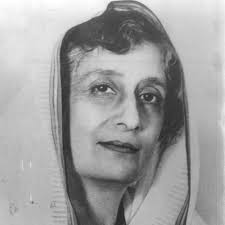Rajkumari Amrit Kaur

Amrit Kaur was born on February 2, 1889, in Lucknow into the Kapurthala Royal family and was raised as a Christian. After graduating from Oxford University in England, she returned to India in 1918. Inspired by Mahatma Gandhi’s vision for India, whom she met the same year, she joined the freedom movement in 1930 and was arrested for participating in the Dandi March.
As a social reformer, Kaur championed women’s rights. She co-founded the All India Women’s Conference in 1927 and the Indian Council of Child Welfare in 1952. She strongly opposed purdah and child marriage and campaigned to abolish the devadasi system. In 1934, she gave up her royal lifestyle to live at Gandhi Ashram, serving as Gandhi’s secretary for 16 years.
Kaur was one of the few women representatives in the Constituent Assembly, contributing to the design of the Indian Constitution. She was a member of the Sub-Committee on Fundamental Rights and the Sub-Committee on Minorities, advocating for equal rights for men and women and the inclusion of the Uniform Civil Code.
In 1947, Kaur became the first woman Cabinet Minister of Independent India and the first Health Minister. She led India’s delegation to the World Health Organization multiple times. She played a pivotal role in establishing the All India Institute of Medical Sciences (AIIMS) in 1956, serving as its first president until her death. She also founded the Indian Council of Child Welfare and became its first president.
As Health Minister, Kaur spearheaded major campaigns against malaria and tuberculosis and was a driving force behind the BCG vaccination program.
Trivia : Rajkumari Amrit Kaur served as the Chairperson of the Indian Red Cross Society for fourteen years.
References:
- Rajkumari Amrit Kaur: Independent India’s First Woman Cabinet Minister - The Lallantop
- Rajkumari Amrit Kaur: The Princess Who Built AIIMS - Indian Express
- Rajkumari Amrit Kaur - Constitution of India